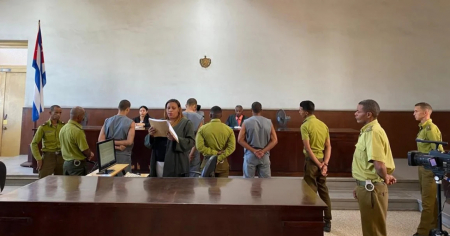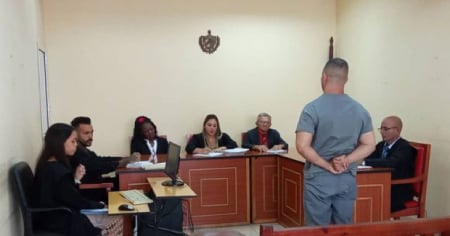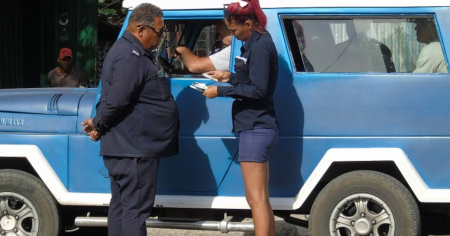Several guards were severely punished during a disciplinary trial held in the municipality of Palma Soriano, Santiago de Cuba, for falling asleep during their shift, which allowed the theft of 30 cattle, of which only five could be recovered.
A report from the state-controlled Tele Turquino justified the "exemplary trial" by arguing that the incident caused significant economic losses, impacting not only the productive entity but also the municipality and the country.
However, the news report omitted any mention of a possible complicity between the guards and the perpetrators of the theft, despite the fact that it was an "exemplary" process and therefore very severe.
It is also noteworthy that there was no mention of the arrest or investigation of those directly responsible for the theft.
The accused faced charges of "failure to fulfill the duty of preserving assets in economic entities," a crime that authorities deemed to have a significant impact on the national economy, particularly on the struggling local livestock sector.
According to the authorities, the negligence of the custodians contributed to the failure to fulfill contracts for the delivery of milk for children, meat for the industry, and the use of livestock for agricultural work, worsening the negative impacts.
The court imposed prison sentences on the defendants, in addition to ancillary penalties that include the deprivation of rights and the prohibition from holding positions or professions related to the protection of property.
The trial served as a symbolic measure within the National Exercise of Crime Prevention and Combat, guided by Miguel Díaz-Canel, in an attempt to demonstrate that the regime is addressing the urgent problems of the country.
This governmental campaign has highlighted that disorder and corruption prevail in the battered Cuban economy.
In the municipality of Songo-La Maya, in Santiago de Cuba, police authorities recovered two oxen that had been stolen and were about to be illegally slaughtered.
The intervention took place following a report from the animals' owners, residents of Matahambre, as stated by the official Facebook page "Héroes del Moncada."
Also in Santiago de Cuba, a man was arrested at the intermunicipal terminal in Frank País, located in the Contramaestre municipality, after being identified as the owner of a shipment containing more than 500 pounds of cheese and 300 pounds of beef.
Frequently Asked Questions about Criminality and Exemplary Trials in Cuba
What are exemplary trials in Cuba?
The exemplary trials in Cuba are public judicial processes aimed at deterring criminal activity by demonstrating the legal consequences of illegal actions. These trials not only punish the guilty but also have an educational component, as they are witnessed by individuals with potential criminal intent and the wider community.
Why are exemplary trials conducted in Santiago de Cuba?
In Santiago de Cuba, exemplary trials are held in response to the rise in crime and to enhance prevention and education within the community. These measures aim to curb offenses such as the illegal slaughter of livestock and meat trafficking, which significantly impact the local economy and food security.
What impact do livestock-related crimes have on the Cuban economy?
The illegal sacrifice of livestock profoundly impacts Cuba's economy and food security, involving thousands of people each year. This type of crime disrupts the supply of meat and derived products, which are crucial for the population's nourishment, and leads to significant economic losses.
How is the Cuban government responding to the rise in crime?
The Cuban government has intensified exemplary trials and has implemented popular surveillance patrols in response to the rise in crime. Although these measures aim to deter criminal activities, the local population questions their effectiveness due to ongoing insecurity and corruption.
Why is the security situation in Santiago de Cuba concerning?
Santiago de Cuba is facing a wave of violence with multiple murders and assaults on guardians and citizens. This situation is concerning as it reflects an increase in crime and the ineffectiveness of authorities to ensure safety, creating fear and uncertainty among residents.
Filed under:






